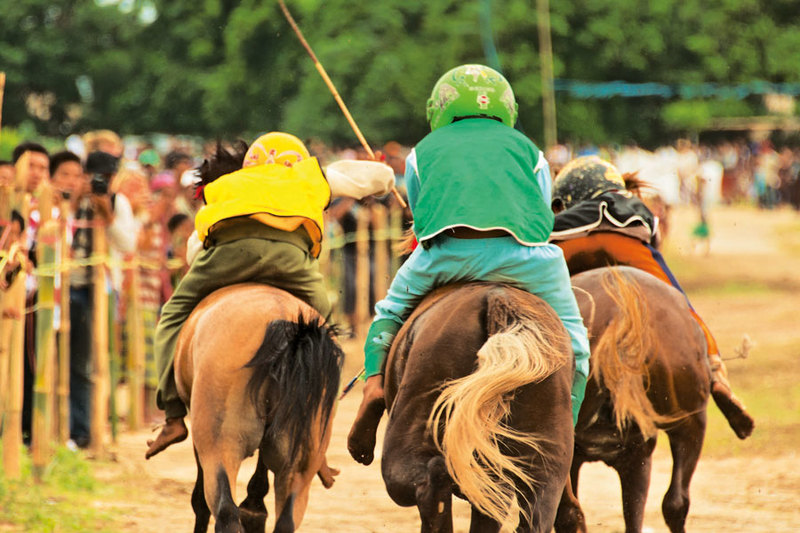Inshallah!
"In the later 1990s, jockeys were usually aged from about ten to fourteen years old, but then we found the lighter jockeys to be faster, and now they are aged from about six to ten."
Fahrir H.M Noer, deputy chairman, Regional Police Chief's Cup 2019
"I worry about him falling and getting hurt, but it is a tradition here on the island and in my family."
"Sometimes if he falls, he gets injured and sometimes not. If Allah wants him to be injured, it's his destiny."
"It [his son's week's payment, about $162] was a gift from Allah."
Asikin Bin H. Mansur, 47, horse trainer, Bima, Indonesia
| Reuters |
Mr. Asikin's older sons, now 25 and 18, were once child jockeys. It's now the turn of their younger brother Adi, 7, competing in this year's Police Chief's Cup. This is an island tradition of long standing and immense fondness on Sumbawa where spectators enthusiastically bet on the races. Horse owners can select from a pool of around thirty child jockeys. And they are children, but proud of their time in the spotlight, and honour-bound to do their best to add to the family coffers, with winnings.
On the island of Sumbawa, the city of Bima is proud of its tradition of child jockeys in professional horse racing. Some of the child jockeys are as young as five. Child jockeys grow up in households that reflect traditional familial involvement in teaching their young boys to jockey; from fathers to brothers to the youngest boys. Those who support the practice emphasize family tradition. They point out that Sumbawan child jockeys are not forced to perform.
In the Persian Gulf, child jockeys race camels. And around that practise there are reports of child enslavement and child trafficking. Regardless, as far as child advocates are concerned the Sumbawa practice represents child abuse that deserves to be outlawed. In response, government officials claim this is a practice that fails to violate Indonesian exploitation law and no sign of stopping the practice is in sight.
 |
| NOW! Jakarta |
The competition in Bima represents a full week of local excitement, a highlight of the city's entertainment and social calendar with the grandstands bursting with spectators on weekdays and even more so for weekend finals. Excited fans cheer their favourites, waving about Indonesian rupiah they gamble with. The Sumbawan boy jockeys earn income from a race that has additional meaning beyond tradition and pride, to a poor family.
Horse owners select from the available pool of 30 child jockeys for the 300 races taking place during the week. The jockeys are paid between $3.50 to $7 for each race they compete in, progressing to the finals where they can earn double that amount, along with bonuses up to a million rupiah ($70), about half the minimum monthly wage. Horse owners themselves compete for a share of the 482 million rupiah prize pot ($34,000).
For the final race in each category, the top prize is a moped whose value is $1,200. A cow valued at $500 is the second prize. Imam Dudu, eight years old, attends elementary school, sometimes missing classes to race. His mother Tiara says that "Racing horses is easy money for the family". As for seven-year-old Adi, he qualified for a final in Bima, coming in fourth, winning the horse owner a refrigerator, and pleasing his father Mr. Asikin, the horse trainer.
 |
| Zukus |
Labels: Child Jockeys, Horse Racing, Indonesia

<< Home